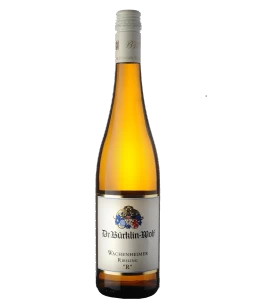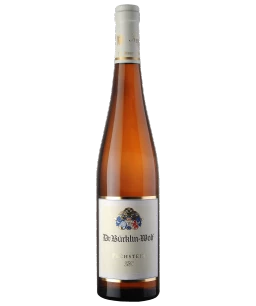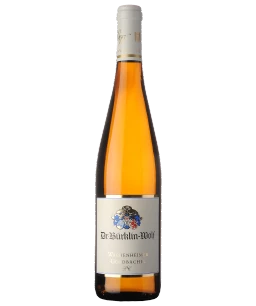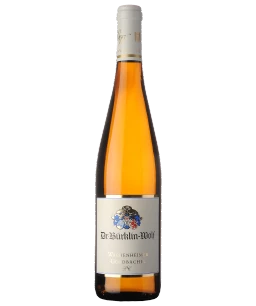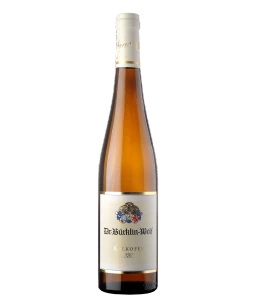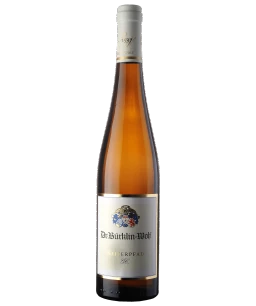Dr. Bürklin-Wolf / Fam. Bürklin
White wines from Dr. Bürklin-Wolf / Fam. Bürklin
Sweet wines from Dr. Bürklin-Wolf / Fam. Bürklin
from Dr. Bürklin-Wolf / Fam. Bürklin
The Pfalz (Palatinate) region is often, and rightfully, called the German „Tuscany", where even the Romans felt very much at home. A mild climate prevails under the protection of the local forests, which allows almond, fig, pine and cypress trees to thrive and also grant the landscapes with a Mediterranean touch.
The tradition at the Bürklin-Wolf winery dates back to 1597 and is today lead by Bettina Bürklin-von Guradze. The spacious and prestigious estate can be found in charming Wachenheim on the wine route. Visitors are always welcome for a tasting at the Vinotek (www.buerklin-wolf.de). The vineyards, mostly planted with Riesling, are located around Wachenheim and the surrounding villages on parcels baring odd names like Ungeheuer (Ogre) or Gerümpel (Junk).
A particularity of Pfalz is the fantastic diversity of the terroir. When one knows how important the origin is for the quality of a wine (and especially for the Riesling), the domain decided to follow a Burgundy pattern to define their parcels. The most exclusive ones are the Grand Crus (G.C.), which allow the real personality of a wine to develop during its long and fascinating life. The wines from the precious Premiers Crus (P.C.) reflect their origins and are just as unique, though less exclusive, as their Grand Crus counterparts.
Bettina Bürklin-von Guradze sees the use of the biodynamic agriculture as the winery's best tool to express the specific properties of each appellation of origin. Also the simpler local wines and the much-loved Gutsriesling, which originates from different parcels, receive the same care and attention. The winery is part of the Syndicat International des Vignerons en Culture Bio-Dynamique (Biodyvin) and gets its certification since 2005. The Pfalz has much to offer when it comes to cultural landmarks, recreation in the free nature and, of course, countless oenology and culinary places of interest. The nearby Restaurant Hofgut Ruppertsberg is an address one simply shouldn't ignore (www.dashofgut.com).
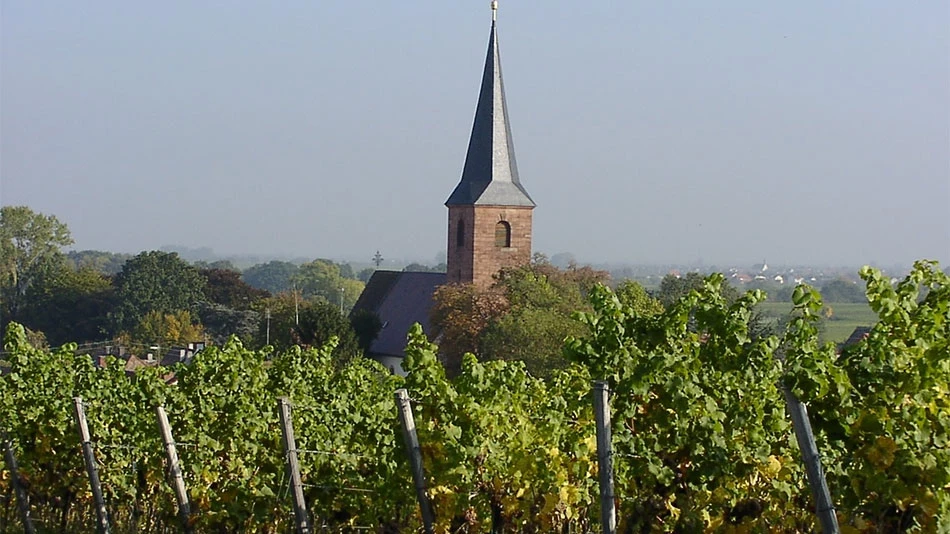
Producer
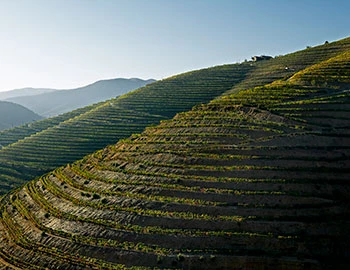
Quinta de la Rosa
Portugal and England have engaged in wine trading since the 14th century. Over the course of time, the British also settled in Portugal, establishing agricultural estates (quintas) to grow wine, and founding large trading companies in Porto. The Bergqvist family are descendants of these settlers, still involved in production and trade on the strength of innovative ideas and great commitment.
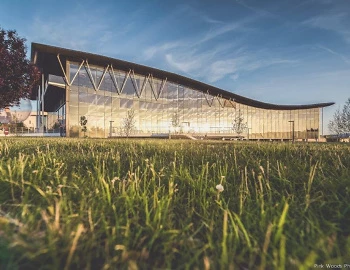
Nicolas Feuillatte
Nicolas Feuillatte, a visionary and gifted entrepreneur, presented his Champagne for the first time in 1976. It quickly became the trendy brand in jet-setter circles in the USA, Australia and England, circles which Nicolas Feuillatte regularly frequented. In just 30 years, Nicolas Feuillatte rose to become the No. 1 Champagne brand in France.
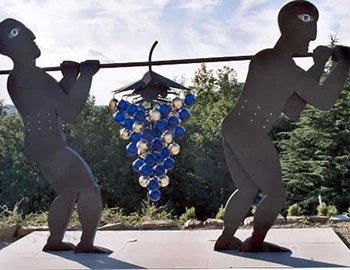
Il Molino di Grace
Frank Grace acquired this estate in 1995 after holidaying in Tuscany with his wife and having fallen for the charm of this idyllic region.

